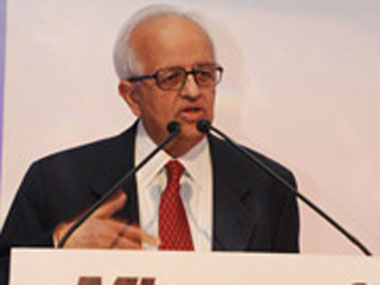Days before the Reserve Bank of India (RBI) is to unveil its annual monetary policy for 2012-13 on 17 April, former RBI governor and leading economic thinker Bimal Jalan warned against looking for ‘soft options.’ He made it clear that monetary policy instruments alone would not be enough to solve the current economic challenges.
Speaking to Firstpost, Jalan said: “The main question is about the scope of monetary policy to tackle the problems at hand. The ability of monetary policy to tackle problems like inflation and a steep current account deficit (CAD) are relatively limited. This must be borne in mind.”
Refusing to be drawn into a comment on what the options before RBI Governor Duvvuri Subbarao are or whether Pranab Mukherjee’s Union Budget 2012 has failed in pushing forward some key structural reforms to address the problem of a ballooning fisc, Jalan, however, made it clear that there were no easy decisions to take for either the government or the RBI. Only hard options are left.
“Look at it this way: if interest rates are raised to tackle inflation, then demand for credit falls. Then you have a situation where companies use their deposits for short-term requirements,” he pointed out.
[caption id=“attachment_264877” align=“alignleft” width=“380” caption=“Jalan, however, made it clear that there were no easy decisions to take for either the government or the RBI.”]  [/caption]
Pointing to the fact that the current account deficit (CAD) of 4.3 percent in April-December 2011 was ‘well beyond the numbers’, he reiterated that steps to tackle the present economic crisis would have to be ‘unpopular, and not easy.’
“The fact that subsidies will have to be kept in check is a correct statement to make. Then there is the aspect of high government borrowings. How can monetary policy address that? These are not easy decisions,” Jalan said.
Jalan’s comments come against the background of a sharply rising CAD, slowing growth and the budget not announcing any major roadmap on fiscal consolidation. With the spectre of fuel price hikes and the increase in service tax and excise duties, the inflationary threat remains, limiting the scope for the RBI to effect any deep cuts in interest rates to spur growth.
The latest purchasing managers’ index number, which came in at 54.7, was the lowest in 2012, but input and output price inflation was seen running high. The lower PMI print was on account of power outages and raw material shortages.
“As a citizen, people are concerned about slowing growth. Then there is the issue of managing inflationary expectations. There are power shortages and fuel subsidies. The crisis has to be tackled by monetary policy and government policy together,” he said.
“After all, what is monetary policy? Infusion of money can take place if inflation is low, or the fiscal deficit is low or if something else is funding the deficit. For India, the options are not going to be easy,” Jalan added.


)
)
)
)
)
)
)
)
)



